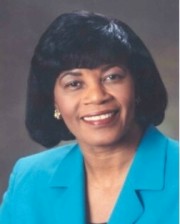Johnson-Sirleaf:Send Taylor Back to Liberia
 From Human Rights Watch:
From Human Rights Watch:(Lagos, March 23, 2006) – Nigerian President Olusegun Obasanjo should promptly comply with Liberian President Johnson-Sirleaf’s request for former Liberian President Charles Taylor to face trial at the Special Court for Sierra Leone, the Campaign Against Impunity said today.
Today marks the 15th anniversary of the devastating armed conflict in Sierra Leone, which began on March 23, 1991, when rebel groups launched a cross-border attack from Liberia on a small village in the Kailahun district. Members of the Campaign Against Impunity are holding news conferences today in Monrovia, Freetown, and Lagos to press for Taylor’s surrender to the Special Court.
“President Johnson-Sirleaf has taken a crucial stand against impunity in Africa by requesting Taylor’s surrender,” said Ezekiel Pajibo, director of the Center for Democratic Empowerment in Liberia, a group that is part of the Campaign Against Impunity.
“Now President Obasanjo must demonstrate that he too cares about justice on the continent by handing Taylor over to the Special Court,” said Shina Loremikan, director of programmes for the Committee for the Defence of Human Rights, a Nigerian organization that is also part of the Campaign.
Charles Taylor has been indicted on 17 counts of war crimes and crimes against humanity for his role in the armed conflict that lasted from 1991 to 2002. The crimes include killings, mutilations, rape and other forms of sexual violence, sexual slavery, the recruitment and use of child soldiers, abduction, and the use of forced labor by armed opposition groups.
In 2003 Charles Taylor left Liberia for Nigeria where he remains. Nigeria acted with the support of the United States, the African Union and other actors in the international community in taking Taylor in as a temporary measure to secure a peaceful transition in Liberia.
President Obasanjo has resisted surrendering Charles Taylor to the Special Court. He has indicated, however, that he would consider returning Charles Taylor to Liberia upon a request from a duly-elected Liberian government. Accordingly reported, Johnson-Sirleaf made a request to Obasanjo, a move publicized on March 17.
“How many years must the victims keep waiting to see justice done?” said Sulaiman Jabati, the executive secretary of the Sierra Leonean Coalition for Justice and Accountability, also part of the Campaign Against Impunity. “It is time for Taylor to face trial for his alleged crimes.”
In a statement issued by the Nigerian government last Friday, Obasanjo said he would consult with the African Union and the Economic Community of West African States (ECOWAS) on the request. Johnson-Sirleaf has also indicated that she wants consultation between Obasanjo and regional leaders on this issue. Nevertheless, Johnson-Sirleaf is equally clear that following such consultation, Taylor should face trial.
“It is a fundamental principle of criminal justice that justice delayed is justice denied,” said Kolawole Olaniyan, Africa Programme director at Amnesty International.
“As President Johnson-Sirleaf has said, time is of the essence,” said Richard Dicker, director of the International Justice Program at Human Rights Watch. “Consultation must not delay justice.”
In January 2006 the African Union reiterated its commitment to fight impunity consistent with the provisions of its Constitutive Act. The Campaign Against Impunity urges African leaders to give this commitment meaning by expressing support for Taylor’s surrender to the Special Court.
The Campaign Against Impunity is a coalition made up of some 300 African and international civil society groups formed to ensure the surrender of Charles Taylor to the Special Court. It was set up in 2002 to try “those most responsible for war crimes and crimes against humanity” in the Sierra Leone conflict.






